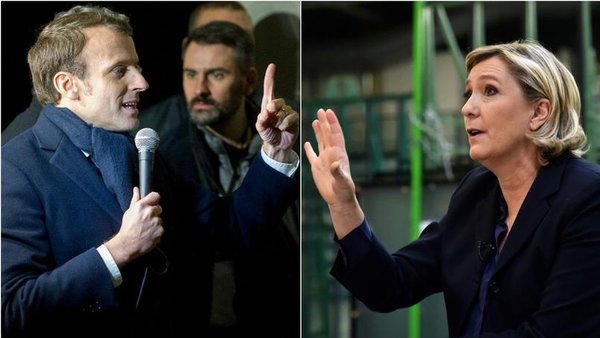French Elections: Populist Revolution or Status Quo?
Marine Le Pen, an anti-EU, anti-Islam French nationalist, and Emmanuel Macron, a pro-EU, pro-Islam globalist, are contending for the French presidency.
French Elections: Populist Revolution or Status Quo?
Soeren Kern | Gatestone Institute | March 21, 2017
The presidential election in France officially got underway on March 18, when the Constitutional Council announced that a total of eleven candidates will be facing off for the country’s top political job.
The election is being closely followed in France and elsewhere as an indicator of popular discontent with traditional parties and the European Union, as well as with multiculturalism and continued mass migration from the Muslim world.
The first round of voting will be held on April 23. If no single candidate wins an absolute majority, the top two winners in the first round will compete in a run-off on May 7.
If the election were held today, independent “progressive” candidate Emmanuel Macron, who has never held elected office, would become the next president of France, according to several opinion polls.
A BVA market research poll for Orange released on March 18 showed that Marine Le Pen, the leader of the anti-establishment National Front party, would win the first round with 26% of the votes, followed by Macron with 25%. Conservative François Fillon is third (19.5%), followed by radical Socialist Benoît Hamon (12.5%) and Leftist firebrand Jean-Luc Mélenchon (12%).
For the first time, the two established parties, the Socialist Party and the center-right Republicans, would be eliminated in the first round.
In the second round, Macron, a 39-year-old pro-EU, pro-Islam globalist (platform here), would defeat Le Pen, a 48-year-old anti-EU, anti-Islam French nationalist (platform here), by a wide margin (62% to 38%), according to the poll.




